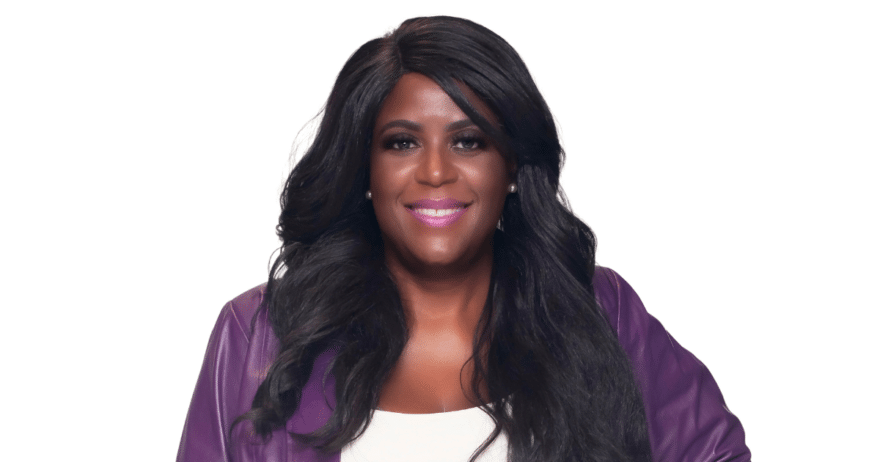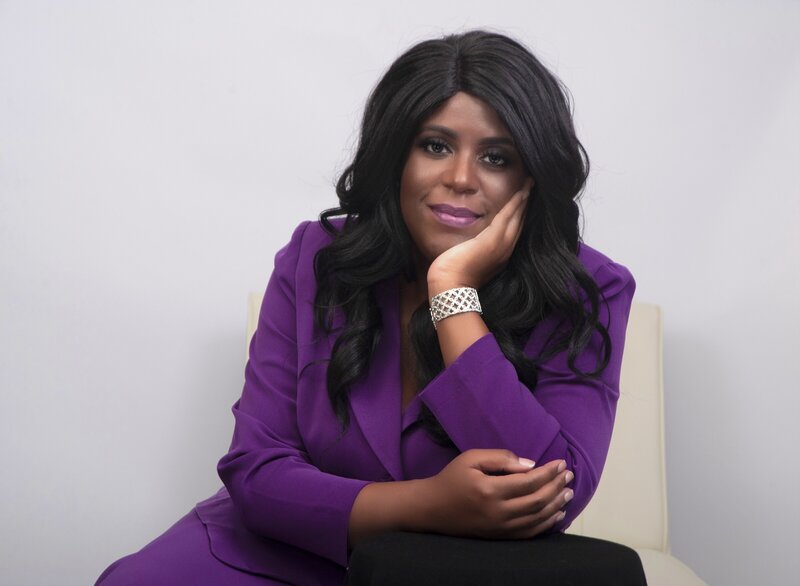May 26, 2025


You’re smart. Capable. The one everyone counts on. From boardrooms to family rooms, you handle it all with grace. But beneath the surface, you’re exhausted. And, yes, maybe a little resentful. You’re doing everything right, yet something still feels off.
Let me tell you what I’ve seen time and time again with my executive coaching clients (and what I’ve personally lived): overgiving is the silent career killer. Especially for high-achieving Black women.
If you’ve ever found yourself over-performing by staying late, taking on emotional labor no one asked for, or being the “fixer” at work and at home, this post is for you.
Let’s talk about why it’s time to stop overgiving, and how to finally break free from the trap.
What Does It Really Mean to Stop Overgiving?
Overgiving is more than just being generous or hardworking. It’s a pattern of giving your time, energy, emotional labor, and resources beyond what’s healthy or sustainable. Often to the detriment of your own well-being, career, or peace of mind.
We overgive when we:
- Say “yes” to every request out of guilt or obligation (can’t tell you how many times I said yes, only to be up 1am, 2am in tears trying to complete I task because I couldn’t say “no”)
- Take on extra roles without extra pay (or even recognition)
- Feel responsible for everyone else’s experience (people pleasing anyone), performance, or emotions
- Overfunction in environments that under-recognize our value
And this is the kicker…
…overgiving is so normalized for us, especially as Black women, that it’s hard to recognize it as a problem until we’re already deep in burnout.
Why High-Achieving Black Women Are Especially Vulnerable to Overgiving
I wish I could say this was just about personality type. But for Black women, overgiving is often survival strategy meets social conditioning.
We’ve been taught to be the backbone, the strong one, the dependable one. And while those traits are powerful, they can quickly turn into self-sacrificing patterns if we’re not careful.
The Cultural Layer
Growing up, many of us watched our mothers, aunties, and grandmothers carry entire households, churches, or communities. Very often with little support. It became the blueprint. We learned that to be valuable, we had to do more, give more, and sacrifice more.
So when we enter the workplace, especially in high-stakes, predominantly white or male spaces, we try to outperform, overdeliver, and overcompensate. And when you add in the eldest daughter syndrome, it’s a whole hot mess on a good day!
Overgiving doesn’t protect you from bias or discrimination. It just makes you tired AND resentful.
The Career Consequences of Not Learning to Stop Overgiving
One of the most dangerous myths about overgiving is that it will help you get ahead. Let me be clear – it won’t.
You Become Invisible
When you overgive, your excellence becomes expected, not celebrated. You become the person who can “handle anything,” so you get more thrown on your plate, but not more recognition, compensation, or opportunity.
I once coached a client, let’s call her Angela, who managed three departments unofficially. Her boss praised her “team player” attitude but never promoted her. Why? Because they didn’t see her leadership as strategic. They saw it as support. She was overgiving her way into invisibility.
You Burn Out Quietly
Overgiving also leads to chronic stress, resentment, and emotional exhaustion. But unlike an obvious breakdown, this type of burnout is subtle. You don’t crash, you fade.
You start feeling numb in meetings, detached from your goals, and even bitter toward colleagues who seem to do less but get more.
You Miss Out on True Leadership Opportunities
Leadership isn’t just about doing. It’s about vision, influence, and boundaries. When you’re stuck overfunctioning, you rarely have the space to strategize or lead. You’re stuck managing instead of guiding.
How to Stop Overgiving Without Feeling Guilty or Selfish
Here’s where the real work begins. Stopping overgiving doesn’t mean you stop caring. It means you start choosing yourself, your energy, and your long-term vision.
1. Build Awareness. Track Your Energy and Overgiving Triggers
Start by getting honest: where are you giving too much? Who or what drains your energy? When do you say yes when you want to say no?
I recommend doing a weekly “energy audit.” Write down your biggest time and emotional commitments each day. Then ask: Was this necessary? Did it serve me or drain me?
2. Set Boundaries With Compassion and Clarity
Boundaries are not walls. They’re rules of engagement. You’re not being mean or difficult. You’re being intentional.
Try saying:
- “I’m at capacity right now, so I can’t take that on.”
- “I trust the team to handle that without my involvement.”
- “I’d be happy to support—with clear priorities and proper resourcing.”
- And, my favorite…”No.” That’s it. No explanation necessary.
3. Stop Overgiving by Reclaiming Your Voice
So many Black women I coach assume their excellence speaks for itself. It doesn’t. You have to advocate for your wins, your workload, and your worth.
In meetings, speak up about your contributions. When negotiating roles or raises, don’t downplay your impact.
This used to be hard for me, too. I once led a cross-functional project that saved the company a boat load of money. But when it came time to talk about it, I downplayed my role. I felt guilty shining a light on my success, like I was bragging instead of just owning the facts.
But here’s what I learned: companies will never value what you minimize. That realization changed everything for me.
4. Normalize Rest and Support
You are not a machine. You are not here to prove your strength by how much you can endure.
Normalize:
- Taking real lunch breaks (not just eating while answering emails)
- Using your PTO without guilt
- Asking for help…at home and at work
You cannot pour into others from an empty cup, sis.
What Happens When You Stop Overgiving?
When you finally break the cycle of overgiving, everything shifts.
- You reclaim your time, which means more space for creativity, rest, and real leadership.
- You gain respect, people start honoring your boundaries when you honor them first.
- You find joy again, in your work, your purpose, and yourself.
One of my clients, Nia, cut her “yes” in half over a six-month period. She stopped volunteering for unpaid extras, delegated more, and started tracking her wins weekly. Within three months, she was offered a leadership position that aligned with her values and gave her a seat at the table she’d been eyeing for years.
Not because she gave more. But because she finally gave to herself first.
Final Thoughts. Stop Overgiving, Your Career and Peace Depend on It
If you’re reading this and thinking, This is me, I want you to know, you’re not alone. And you’re not broken.
You’ve been doing what you thought was necessary to succeed. But now, it’s time to shift.
You do not have to overgive your way to the top.
You do not have to shrink to fit someone else’s comfort zone.
You do not have to carry it all just to prove you’re worthy.
You are already enough.
It’s time to stop overgiving. So you can start rising, thriving, and leading from a place of wholeness.
Next Steps. Reclaim Your Power and Say Yes to Yourself
Ready to stop overgiving but don’t know where to start?
✨ Download my free checklist: “5 Ways to Stop Overgiving Without Losing Your Edge”


I’m a certified executive coach and an ICF Professional Certified Coach (PCC) for Twanna Carter Professional & Personal Coaching, LLC. I flubbed my first career transition from the military so badly, it took me the next 10+ years to build my confidence and recover. I know what it feels like to struggle with imposter syndrome and uncertainty about my leadership skills in the workplace. It’s why I am dedicated to empowering Black women. Helping them navigate career challenges and uncertainty by providing them with the tools and strategies they need to be successful. Schedule a V.I.P. Roadmap session today.
If you enjoyed this blog, please share it. If you’re also feeling generous, consider Buying Me a Coffee.☕️
Curated Reads: Essential Books to Add to Your Personal Library …
- Corporate Blues, The Untold Stories of Women in Toxic Workplaces, presented by Dr. Carey Yazeed, featuring Dr. Twanna Carter
- Job Offers 101 – Everything You’ve Always Wanted to Know by Dr. Twanna Carter
- Melaninated Magic: 180 Affirmations to Nurture Your Soul and Unleash Your Black Girl Joy by Dr. Twanna Carter
- Unbreak My Soul: How Black Women Can Begin To Heal From Workplace Trauma, by Carey Yazeed, PhD
- The Next Level: A 30-Day Career Growth Planner for Black Women by Dr. Twanna Carter
- 33 Tools to Remake Your Career by Paul Gabriel Dionne
- I’m Not Yelling: A Black Woman’s Guide to Navigating the Workplace (Successful Black Business Women), by Elizabeth Leiba.
- Crucial Conversations: Tools for Talking When Stakes Are High by Kerry Patterson, Joseph Grenny, Ron McMillan, and Al Switzler.
- Influence: The Psychology of Persuasion by Robert B. Cialdini.
- How to Win Friends and Influence People by Dale Carnegie.
- Overworked and Undervalued: Black Women and Success in America by Rosalyn D. Davis, Sharon L. Bowman, et. al.
- Power Negotiation – Getting to the Yes: Strategies to Get What You Want, When You Want It by Patrick Kennedy
- Set Free to Live Free: Breaking Through the 7 Lies Women Tell Themselves by Saundra Dalton-Smith, MD
Read my latest blogs…
- Strategic Career Mapping for Executive Black Women: How to Identify Roles That Reflect Your True StrengthsWhy Strategic Career Mapping Matters More Than Ever In today’s corporate landscape, Strategic Career Mapping has become more… Read more: Strategic Career Mapping for Executive Black Women: How to Identify Roles That Reflect Your True Strengths
- The Fear-Based Leadership Cycle Secretly Running Your Life. And How to Break ItFear is a powerful emotion. It can protect you, warn you, and heighten your awareness. But when fear… Read more: The Fear-Based Leadership Cycle Secretly Running Your Life. And How to Break It
- Redefining Success. How Black Women Executives Are Leading a New Era of Authentic LeadershipThe New Leadership Trend. Redefining Success Across boardrooms, Zoom calls, and LinkedIn feeds, a powerful shift is underway.… Read more: Redefining Success. How Black Women Executives Are Leading a New Era of Authentic Leadership
- How to Quiet the Inner Critic and Stop Second-Guessing Yourself in High-Stakes RoomsUnderstanding the Inner Critic Your inner critic is that persistent internal voice that judges, doubts, and second-guesses you.… Read more: How to Quiet the Inner Critic and Stop Second-Guessing Yourself in High-Stakes Rooms
- The Survival Blueprint. What To Do Immediately When You Realize You’re Being Managed OutUnderstanding What “Being Managed Out” Really Means. And Why Immediate Help Matters The first time I realized I… Read more: The Survival Blueprint. What To Do Immediately When You Realize You’re Being Managed Out
- 10 Powerful Reasons Why Black Women Entrepreneurs Are Leading the Rise of EntrepreneurshipWhy Black Women Entrepreneurs Are Leading the Rise of Entrepreneurship Entrepreneurship has always symbolized courage, innovation, and self-determination.… Read more: 10 Powerful Reasons Why Black Women Entrepreneurs Are Leading the Rise of Entrepreneurship
















+ show Comments
- Hide Comments
add a comment